
I’ve been fielding questions about the “Classic Rock Death Star” for more than 30 years now. From the format’s beginnings, naysayers have been convinced that fatigue and repetition would ultimately deep-six these rockin’ gold based stations.
But that hasn’t been the case – in fact, not even close. The format has actually thrived in the PPM era, often scoring record ratings for stations that execute it well. I probably get to see more music and perceptual research for Classic Hits/Rock stations. And I can tell you without qualification, the state of the format is:
As strong as ever
Every June, Nielsen publishes a scorecard for the format. And a remarkable trend has begun to manifest itself. True, station after station in market after market are knocking down strong ratings. And the trend line is very positive – even among 18-34 year-olds – a demographic group that no one would have predicted would be part of the format’s story in 2018 (including me):
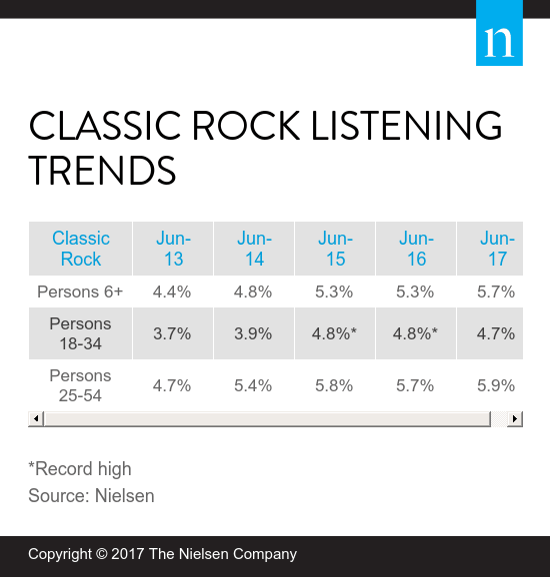
We’ll have to wait and see how June 2018 ends up. But whether you’re looking at mass appeal numbers like 6+, the 25-54 sweet spot, or those 18-34 members of Gens Z and Y, the story is impressive.
All of this hit home earlier this week when it was brought to my attention the hashtag #MillennialClassicRock was trending. It’s a wonderful example of social media humor based around the lyrics of big Classic Hits and Rock songs. And while many of these Twitter “content creators” are probably outside the Millennial boundaries, the humor, the irony, and the generational snark is LOL-worthy:
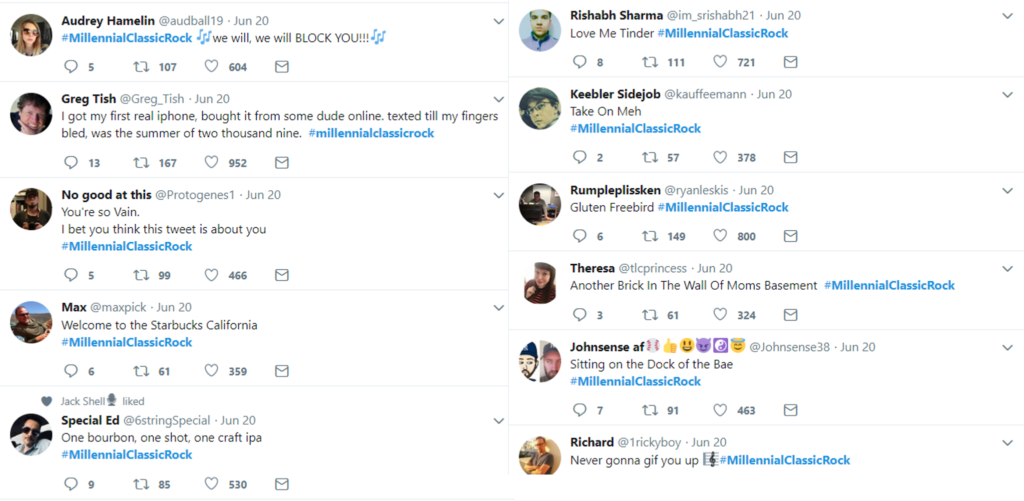
And it tells you that aside from the music’s sustained popularity – on the radio, in movie soundtracks, on video games, and in television ads – it has also become a fixture in our entertainment culture.
So, what’s the problem?
It turns out a new book – “Twilight of the Gods” by Steven Hyden – talks about the end of the line for many Classic Rockers due to advancing age and other health issues that impact all of us eventually – even the most iconic rock stars.
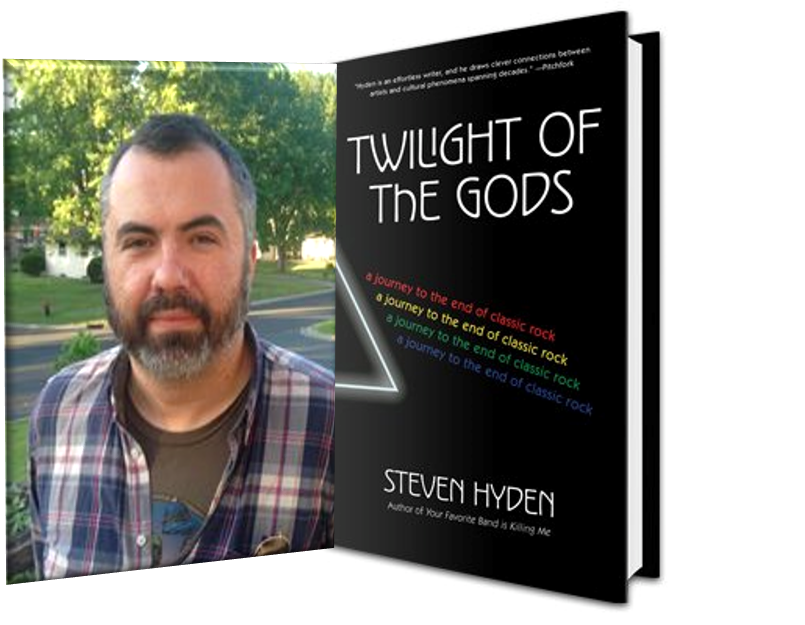
Author Hyden is a living, breathing example of why the Classic Rock format is alive, well, and thriving. He’s a Gen X dyed-in-the-wool uber P1 to the music. He’s a loyal super fan, not the least reluctant to write about his worship of the music and the brilliant artists who wrote and performed it – and in many cases, still playing concerts today.
That’s where he begrudgingly admits the reality of Father Time, expressing a sense of melancholy and even regret when he saw the Who perform live in 2012, and came to the realization the band was succumbing to advancing age.
Incidentally, I’ve had that same personal reaction to seeing my favorite bands from the ’60s and ’70s lose their fastball right on stage in front of thousands. The Who’s Super Bowl performance in 2010 was that moment for me. I’ve gotten to the point where I won’t go to concerts from certain Classic Rock bands because I’d rather remember them as they were.
Hyden was recently interviewed by The New York Times‘ John Williams, and left us with some incredible nuggets that eloquently explain the lasting power of the radio format:
“Because of the nature of Classic Rock radio playing these songs over and over gain, these artists are frozen in amber in a certain way.”
“The connection I have to this kind of music is the closest thing I have to religion – which is a very Classic Rock thing to say, a very over-the-top, bombastic statement.”
“When people mourn pop stars, what they’re really mourning is a piece of their own past.”
“Before Classic Rock radio, you were on the radio because you had hits, and once you didn’t have hits, you were gone. Classic Rock introduced this idea that you could stay on the radio forever without having any new songs. It created this situation where classic bands were competing with new bands. It was like rock history being split in two.”
Despite the brilliance of these observations, Times writer Wiliams avers the genre “is in steep decline.” But music history – now spanning centuries – suggests he may be seriously mistaken. In the interview, Hyden talks about how bands that have survived the loss of key members have persevered, often “melting together” to continue touring.
Think about AC/DC who replaced their lead singer, Brian Johnson (who replaced Bon Scott), with Axl Rose of Guns N’ Roses.
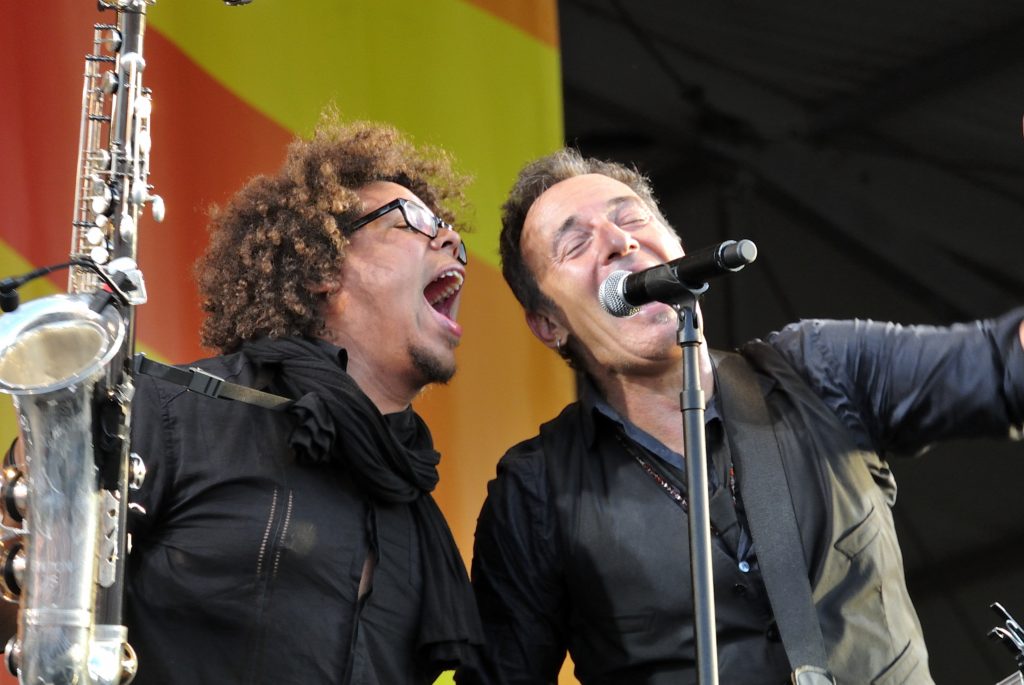 Then there’s the “keeping it in the family” strategy. Bruce Springsteen somehow replaced his late band mate – Clarence Clemons – with the saxophonist icon’s nephew, Jake (pictured right). And Wolfgang Van Halen – Eddie’s son – is now playing bass in place of original band member Michael Anthony.
Then there’s the “keeping it in the family” strategy. Bruce Springsteen somehow replaced his late band mate – Clarence Clemons – with the saxophonist icon’s nephew, Jake (pictured right). And Wolfgang Van Halen – Eddie’s son – is now playing bass in place of original band member Michael Anthony.
In an interesting generational twist, Ringo’s son, Zack Starkey, took over for the Who’s Keith Moon many years ago.
And mixing genres, Country star Vince Gill is now sitting in for the late Glenn Frey, co-founder of the Eagles. And interestingly, so is Frey’s son, Deacon.
But none of these slick substitutions explains the hundreds of “tribute bands” touring the country and the world, brilliantly carbon-copying the music, outfits, style, and vibe of the legendary Classic Rock bands they celebrate.
Talk to fans of these skilled “tribute bands” like Australian Pink Floyd or 1964 (the Beatles) at their concerts, and you’ll hear some of the same oozing, unabashed passion Classic Rocker fans had for the original performers decades ago. Whether you’re old enough to have grown up with the music – or you wished you had – it’s still very much possible to enjoy the musical sounds of generations past.
And there’s precedence for this. Symphony orchestras have been successfully “covering” Tchaikovsky, Mozart, Wagner, Brahms, and the scores of other long-dead Classical music composers and performers for years and years.
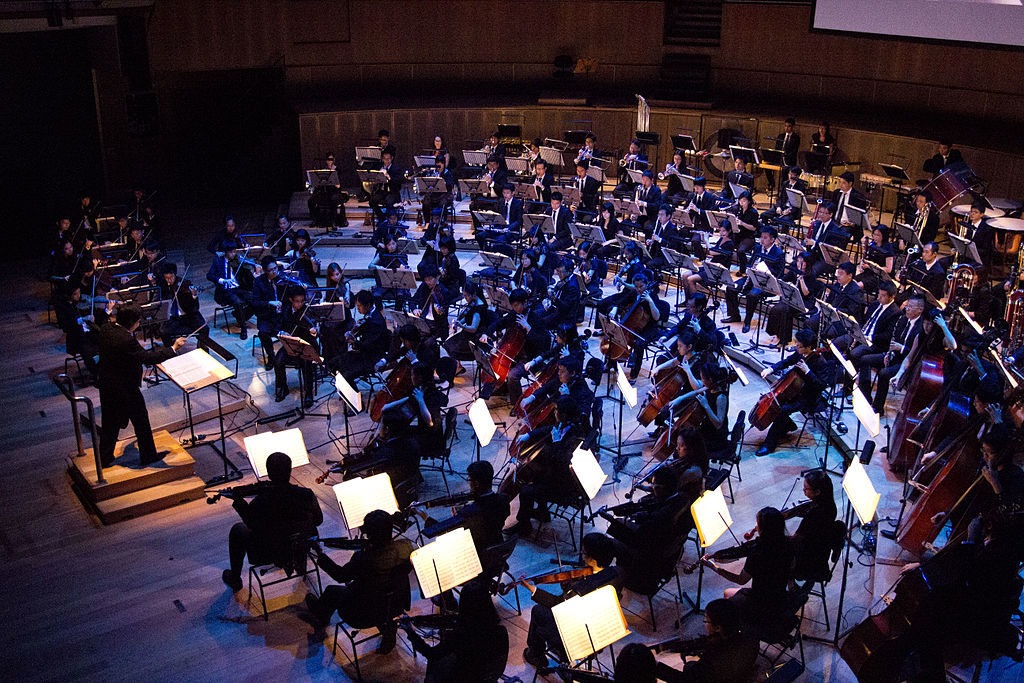 That’s right – think of the New York Philharmonic or the Detroit Symphony Orchestra as “tribute bands,” paying homage to the greatest musicians and composers of the ’60s and ’70s, and you can visualize how Classic Rock fans will enjoy the live music of Prince, Tom Petty, the Who, decades and decades from right now. It will simply be performed by brilliant musicians of future generations, lovingly learning how to play and sing those classic songs and albums.
That’s right – think of the New York Philharmonic or the Detroit Symphony Orchestra as “tribute bands,” paying homage to the greatest musicians and composers of the ’60s and ’70s, and you can visualize how Classic Rock fans will enjoy the live music of Prince, Tom Petty, the Who, decades and decades from right now. It will simply be performed by brilliant musicians of future generations, lovingly learning how to play and sing those classic songs and albums.
And then there’s holograms, but that’s for another blog post.
Mark Twain was right to get a little jerked out of shape when his death rumors circulated. And so should those of us who program, present, and love Classic Rock – as well as the stations that continue to pay homage to the music.
Rumors of its demise are greatly exaggerated.
The artists may not live forever, but the songs remain the same.
Thanks to Bob Ottaway, Mike Stern, and Lori Lewis.
- 5 Lessons For Radio From The Apple Watch - May 5, 2025
- DJs And Baristas: Can They Save Their Companies? - May 2, 2025
- Radio’s New Audience Equation: Z Over Y = Trouble - May 1, 2025




Audio recall is powerful. And, there a so many other classics to attract in all formats, with modern curation! Thanks, Fred.
Appreciate it, Clark.
Dead and Co. are also laying out a blueprint for keeping the music alive with three younger players including John Mayer joining Bob, Bill and Mickey. They just played their 100th show together and Weir said here’s to a couple hundred more. And the band sounds great to boot.
As I write this, my station here in Minneapolis, KQRS, is playing ELO’s “Livin’ Thing”, used by Volkswagen last year to promote their Tiguan model.
This week, Acura launched a new campaign using The Rolling Stones song “She’s a Rainbow” from 1967.
While the death of Classic Rock has indeed been greatly exaggerated, it would be nice if those same agencies who use this iconic music to connect brands with audiences, realize the 25-54 gold standard buying demo is terribly outdated.
Right there with you, Scott. The radio industry hasn’t done the job of selling the attributes of this audience, and it continues to bewilder and perplex. Rather than caving and simply refocusing on the “money demos,” we are missing the opportunity to allow marketers to participate in connecting with an amazing, affluent audience. Onward, Scott.
Radio formats never die, they just fade away. You can see the fate of any era-based format by looking at post-radio history. The music of the 20’s was the “oldies” in the 40’s. The music of the 40’s was the Big Band / Nostalgia format in the 60’s. The music of the 60’s became Oldies. Each format can have several flavors carved from it, such as Good Time Oldies, R&B Oldies, Classic Country, Classic Hits, etc… Music genres come, but never really go. They can be recycled, looked back on nostalgically, evolved, or even resurrected. The Rock format evolved from different Oldies artists, like the Doors, Jimi Hendrix, and way before that, Robert Johnson. This evolutionary process will continue ad infinitum and ad naseaum until long after we shuffle off this mortal coil. The music never dies, but the initial target audience for that music does. When that happens, only the music remains — awaiting rediscovery by a whole new audience. The British Invasion groups rebranded American blues and pop music, which could only happen because they studied the past and used it as inspiration for the future. Doesn’t every format do that? Doesn’t this mean that every format has the potential to spark something derivative, yet brand new? That’s why every format should be represented on the radio. Unfortunately, because radio is a business, it tends to lean on formats that have a living audience (who are still buying the advertised products). There’s nothing wrong with that. If your audience is still buying products, you still have a viable commercial radio format. If not, your format is a piece of musical history. It deserves to be displayed with pride. It is both educational and inspirational. We should represent all formats on radio, but some are more public service than income-generating. Perhaps HD channels or pure-play Internet streams are a good place to showcase these formats; not to sell products, but to inspire the next generation of music that will sell future products.
Well-said, Joe. One of reasons SiriusXM has excelled in recent years is that broadcasters have walked away from popular formats because of their demographic skew (both old and young). In te case of Classic Rock, listeners are most certainly aging, BUT spending more money than ever. Appreciate you taking the time to make the case.
Another good read, Fred!
As classic rock stations continue to slowly add more pop, its success is no surprise. The format seems to have a difficult time moving forward era-wise, so it is instead getting wider in its existing era in a mostly-successful effort to appeal to more women/persons. Only a radio person would dare call “Sweet Dreams” by The Eurythmics classic rock, but it’s happening to many songs with this sound. Alas. Classic Hits and Classic Rock are becoming more and more alike in many markets, and rock music is not the common denominator.
RIco, it has clearly broadened many of these stations which go a long way toward explaining those growing 6+ numbers. Thanks for the comment.
It will live until great live music by young bands in small venues returns simply because it’s far more engaging than most of today’s releases. The world that grew classic rock is gone for the moment but could easily return under a new generation of venue owners.
In the Internet age, not sure how that’s going to happen, Bob. But in the meantime, music that millions of people were exposesd to on the radio in the ’60s, ’70s, and ’80s endures. And as parents keeping playing it for their kids, it’s not going anywhere. Appreciate the comment.
Some people just feel the need to dust off the A”Classic Rock is on the way” out chestnut periodically, despite all data to the contrary. Classic Rock is the first genre that has spanned generations and there’s something about it (just really good music is my theory) that endures.
I think terrestrial radio’s future is in more peril than Classic Rock’s.
Hmmm….never thought about it that way. I do this know – don’t bet against Classic Rock. Thanks, Bob.
Was hoping that your blog today would draw the Classical Music analogy. As if to proof the point, Sir Paul goes back to Liverpool and entertains all ages. Worth the Sitcom length (sans commercials) to slow down and watch in one sitting. https://m.youtube.com/watch?feature=youtu.be&v=QjvzCTqkBDQ
Came across this video this morning, Paul. NON-STOP smiling for 22 minutes! What a treat!!
Although I see much less music research than you, Fred, I have an instinctive feeling that a significant percentage of today’s younger listeners simply don’t like the new music being produced today.
The music industry appears to be stuck in a perception that everyone below a certain age loves rap, hip-hop, and music influenced by same. For those listeners who do not “buy in” to that mindset, their best refuge is the last two decades of the previous century.
Right there, you have both the reason for Classic Rock/Classic Hits’ longevity and the reason why your reply to an earlier post rings true with me. There are no such things as “young bands with live music” anymore because no one takes a chance on anyone who doesn’t emulate Justin Bieber (to take just one of many bad examples).
We’ll be transmitting via digitally-modulated laser beams long before these two formats die.
LOVE this blog today, Fred! Especially the last line, “The artists may not live forever, but the songs remain the same.”
And the hashtag mash-up of classic rock with modern twists was simply HYSTERICAL! I had to save the image and blow it up to read them all (that happens when you’re an aging classic rock lover) but I was just dying laughing! I tried my best to think of my own but came up short of those pictured. Here are my two feeble attempts:
“The First Time Ever I Saw Your Facebook,” and,
“I Just Called to Say I Love Youtube” (or frankly, ANY song title that ends with the word “You”!)
Great stuff, Fred, thanks for the always fun, interesting, informative blogs!
I absolutely loved your article. Nevertheless, as a programmer and music devotee I believe classic rock is going to implode itself when it comes to radio format. The corporate structure of format programming is creating a repetitive monster that doesn’t allow listeners to appreciate the fringe songs that fueled the era. Like most corporate entities it can’t see the resources that is burning through to get the ratings it wants right now. Maybe, the expectation is that there will be an ever lasting supply of new ears. All the while, the album oriented listener which built the genre is being left out making classic rock nothing more than a prop.
It’s on us as programmers to continue to make it interesting, shuffle the deck, and involve the audience. Even the very best music fades away if it isn’t nurtured and respected. There are many stations doing more than spinning a Classic Rock safe list. We’ll continue forging ahead to instill those values in other stations, Bob. Thanks for the comment (and the warning).
It’s good to hear that others are venturing outside of the box that is being presented by the corporate format sales people. Personally, I think the rise in talk radio was fed by the narrowing of the playlist. Drive on!
You may be right about the gravitation to spoken word, Bob. But that’s been a fact of life as many people age. Appreciate the follow-up and thanks for engaging.
It’s AMAZING… three decades after the format first emerged, Classic Rock genres remain consistently at the top in our strategic research.
Congrats on seeing its potential way back then, and your entry into the Hall of Fame!
Yeah, Mark, I’d love to tell you I knew this was going to happen back in 1985, but I’d be lyin’. Many thanks for the kind words & your friendship throughout the years.